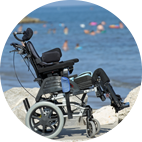[av_textblock size=” font_color=” color=” custom_class=”]
LIMITATION OF LIABILITY ACT
In the United States, as in other countries, it is possible for the owners of vessels to limit their liability in cases of maritime accidents resulting in damages. The Limitation of Liability Act allows the owner to limit any liability that arises from a voyage to the value of the vessel and freight at the conclusion of the voyage itself. Although there are exceptions to this doctrine, in order to fight a vessel owner that claims Limitation of Liability, you need an experienced Jones Act Attorney who knows the ins and outs of maritime law and will recover the maximum amount of compensation available.
In addition to limiting his liability, this act allows an owner to require all claimants from a single event to bring all claims against him in a single proceeding in federal court without a trial by jury. If an action is brought against a vessel owner and he claims limitation of liability, he is not admitting to liability. He is able to assert the Limitation without admitting guilt. If he wins the case, he will not have to pay anything. But even if
he loses, his liability will be limited.
If this seems like an unfair doctrine that protects the owners of vessels far more than those who serve on them, many courts and authorities would agree. The original intent of such limitations was to encourage investment of funds in a venture and minimize fear of loss. However, this doctrine arose to protect investors before modern insurance and bankruptcy protections existed, and most certainly does not seem appropriate in a
maritime setting.
Nevertheless, Limitation of Liability must be dealt with, and there are several ways to minimize its application.
Privity and Knowledge
Limitation of Liability will only be allowed if the vessel owner had no privity or knowledge of the acts that resulted in the damage in dispute. Unfortunately, the concepts of privity and knowledge are extremely vague and the courts must be relied upon to
interpret them.
Privity and Knowledge with regard to Individual Owners:
While it is clear that the owner of a vessel isn’t required to supervise the vessel, if the owner is an individual, in the following situations he will be considered to have privity or knowledge:
- When an individual owner is facing a personal injury or death claim, he will be charged with privity or knowledge of the master or superintendent of the voyage at or prior to the commencement of each voyage.
- If the individual owner delegates all control, the delegate will be considered the ‘alter ego’ of the owner, and therefore the owner will be considered to have privity or knowledge.
- The owner will have privity or knowledge if he is in active control of the vessel when the damage that gave rise to the claim occurred. If the owner is aboard the vessel and does not have active control of the vessel, then he can invoke limitation of liability only when it could not be reasonably expected that he discover or prevent the negligent acts of his employees. But if the owner is entrusting another’s competence, he must have some objective basis to trust the employee if he is to assert limitation.
Privity and Knowledge with regard to Corporate Owners:
In the case of a corporation, there are three major differences in privity and knowledge:
- There can be no limitation of liability if damage resulted under the supervision of high-level managerial personnel, which includes officers or employees that have discretion over the activity that caused the damage.
- Also, unlike with individual owners, corporate owners can not delegate responsibilities and thereby limit their liability.
- Finally, a high-ranking officer’s failure to enforce a rule or a custom will be held to constitute privity and knowledge.
Loss of Life Amendments
The harshness of Limitation of Liability is somewhat alleviated by the Loss of Life Amendments passed by Congress in 1934, and subsequently amended again in 1984. This amendment provides more coverage for victims of vessel accidents that result in personal injury or death.
In such instances, if the claims are not satisfied after limitation of liability has been applied, then the owner must provide additional funds in the amount of $420 per ton of vessel weight to the claimants. Considering that vessels can weight upwards of 10,000 tons, his can provide a gnificant amount of additional coverage, often millions of dollars.
Call a Maritime Attorney Today.
Even a cursory review of the applicable maritime law makes clear why any claimant must retain a knowledgeable attorney to fight for his rights. Each and every maritime claim has many moving parts, and your recovery can be reduced to almost nothing unless your rights are carefully managed. Contact an attorney at Kirkendall Dwyer LLP today to begin your free consultation.
[/av_textblock]

